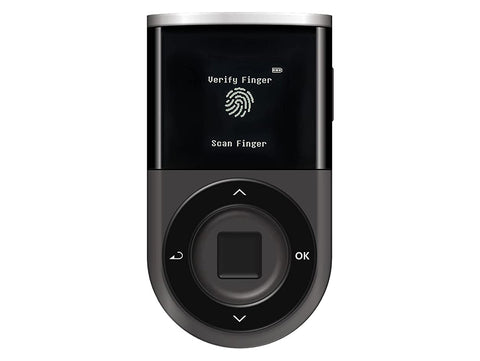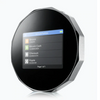What is a Crypto Cold Wallet?
A cold wallet is a cryptocurrency wallet that is not connected to the internet. This means that it is much more secure from hacking attempts, as there is no way for hackers to access the private keys that are stored offline.
Cold wallets can take many different forms, including physical hardware wallets, paper wallets, and software wallets that are installed on an air-gapped computer. In general, any wallet that is not kept online can be considered a cold wallet.
Hardware wallets are physical devices that look like USB drives or smart cards. They typically include a small display so you can confirm transactions, and they store your private keys offline in a secure element.
Another option is to create a paper wallet. This involves generating a public address and private key on an online service and then printing out the keys in a physical form. You can then store the paper wallet in a safe place, such as a fireproof safe or safety deposit box.
Finally, you can install a software wallet on an air-gapped computer. This computer should not be connected to the internet, as this could allow hackers to access the wallet.
Cold wallets are often considered to be the most secure type of cryptocurrency wallet, since they're not vulnerable to online attacks. However, they can be lost or stolen, and if you don't have a backup, you could lose your coins forever.
Cold wallets are an important part of any crypto portfolio, and they can help you keep your coins safe from hackers and other online threats. If you're serious about investing in cryptocurrencies, cold storage is a must-have.
What's the Difference Between a Cold Wallet and a Hot Wallet?
As we just mentioned, a cold wallet is a type of cryptocurrency wallet that is not connected to the internet.
A hot wallet is a type of cryptocurrency wallet that IS connected to the internet. Hot wallets are considered to be less safe than cold wallets because they are vulnerable to hacking attempts. However, a hot digital wallet is considered more convenient to use because it can be accessed from anywhere in the world through an internet connection.
Cold wallets, though, are considered to be much safer than hot wallets because they are not vulnerable to hacking attempts.
Many crypto customers actually use both hot and cold wallets. Some prefer to use a hot wallet when actively trading crypto but then transfer their crypto into a cold wallet to hodl (hold).
What are the Benefits of Using a Cold Wallet?
There are several benefits of using a cold wallet including:
Cold wallets are much more secure than hot wallets because they are not connected to the internet. This means that cold wallets are less likely to be hacked.
Cold wallets can be used to store large amounts of cryptocurrency. This is because cold wallets are not limited by the amount of space that is available on a hot wallet.
Cold wallets are easy to use and can be accessed from anywhere in the world.
How to Use a Hardware Wallet
Hardware wallets are the most secure way to store your cryptocurrency, and they're relatively easy to use once you get the hang of it. Here are the basic steps to set up a use a hardware wallet.
1. Choose a Hardware Wallet
There are many different types of hardware wallets available, but be sure choose one that's easy to use and provides a high level of security.
2. Set Up Your Hardware Wallet
Once you have your hardware wallet, the next step is to set it up. This process will vary depending on which type of wallet you're using, but in general, you'll need to connect your wallet to a computer or mobile phone and follow the instructions on the screen.
3. Generate a Wallet Address
After you've set up your hardware wallet, you'll need to generate a unique address for each cryptocurrency you want to store on your device. This is how your hardware wallet will know which coins to sign transactions for.
4. Send Cryptocurrency to Your Wallet Address
Once you have generated a wallet address, you can send cryptocurrency to it from any other wallet. This is how you'll store your coins on your hardware wallet.
5. Sign Transactions Offline
When you're ready to spend your cryptocurrency, you can do so by signing a transaction offline with your hardware wallet. This means that even if your computer is compromised, your funds are safe as long as you have your device or at least your recovery phrase.
Do you need a cold wallet?
Yes. The main reason to use a cold storage wallet is security. By keeping your private keys offline, you eliminate the risk of them being stolen by hackers.
Another reason to use a cold wallet is that it can help you avoid accidental loss or theft of your cryptocurrencies. For example, if you store your Bitcoin on an exchange, you are trusting that the exchange will not be hacked and that they will not lose your Bitcoin. However, exchanges have been hacked in the past, and there is always the risk that they could be hacked again in the future.
By storing your Bitcoin and other crypto assets in a cold wallet, you have complete control over your private keys and can be sure that your digital assets are safe from online threats.
Is Coinbase wallet a cold storage wallet?
No, Coinbase is not a cold storage wallet. Cold storage refers to the offline storage of cryptocurrency private keys. This can be done via a paper wallet or a hardware wallet. Coinbase does offer a "vault" service which allows users to store their cryptocurrency private keys offline. However, this is not the same as a cold storage wallet.
The Best Cold Storage Wallets for Bitcoin & Cryptocurrency
When it comes to storing your cryptocurrency, there is no such thing as too safe. That's why many investors choose to store their coins in a cold wallet – offline storage that provides an extra layer of security against hacks and scams.
If you're looking for the best cold storage option for your Bitcoin or other cryptocurrency holdings, check out our list of the best crypto cold wallets on the market today.
1. Ledger Nano S – The Overall Best Cold Wallet

2. Trezor Model T – The Best High-End Crypto Wallet

3. KeepKey – The Best Budget & User-Friendly Cold Wallet

4. BitBox02 – The Best Multisig Cold Storage Wallet

5. D'Cent Biometric Hardware Wallet - The Best Biometric Hardware Wallet

6. Ledger Nano X - The Best Bluetooth Hardware Wallet

7. Trezor One - The Best Crypto Wallet for the Not-So-Tech-Savvy






















































